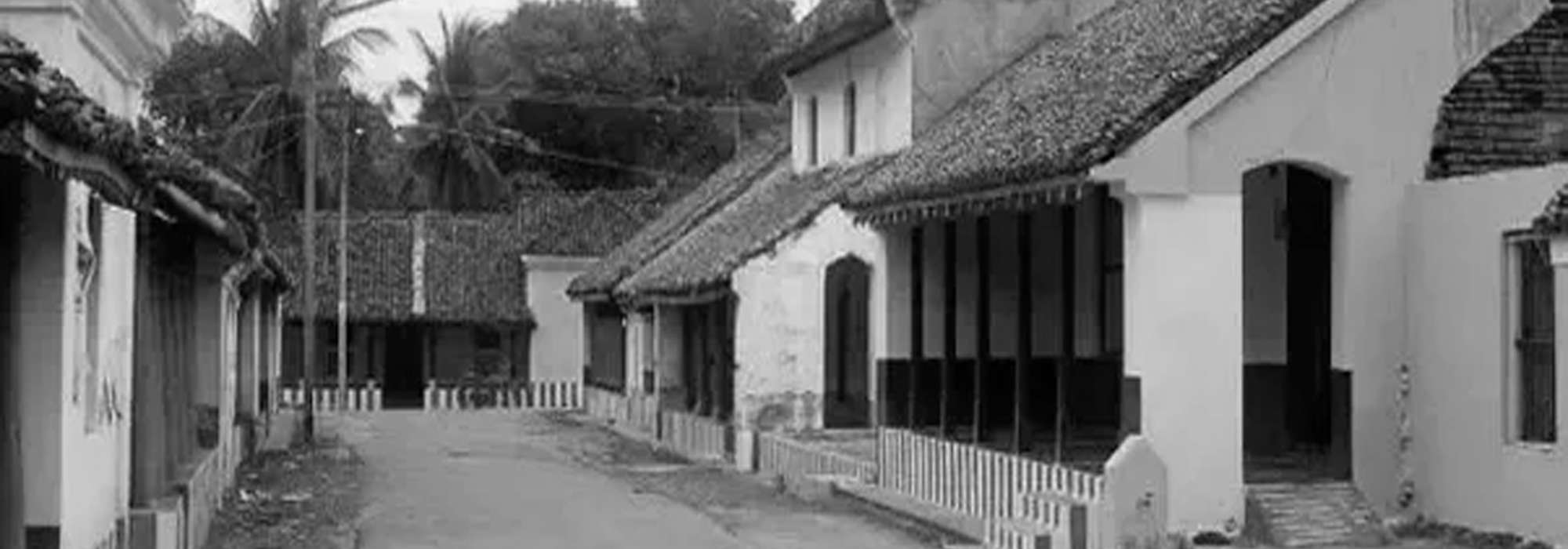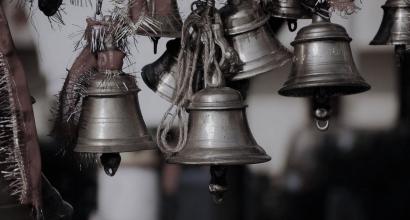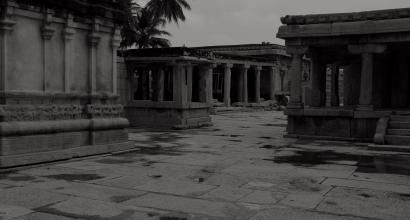Once, a Department of Health employee visited Dr. Gundanna’s clinic and explained his brother’s illness. Gundanna patiently heard his description and then turned towards the elder brother; staring at him through his spectacles he asked: “What’s wrong with you?”
He said, “I never get hungry!”
“What’s your diet?”
“Nothing.”
Dr. Gundanna said, “Isn’t it good if you can sustain this way, with no food? You can then steer all your salary to your bank account. ”
Meanwhile the younger brother intervened. “The issue, Dr. Gundanna, is that he’s growing weaker by the day. A cup of coffee in the morning along with either dosa or uppittu; lunch for the sake of it, at eleven in the morning; he doesn’t eat rice either. He just pecks at some Coconut palya and a couple of lentils of alasandi or kadale if there’s any. Later in the afternoon, he either has some poori or bonda – whatever is made for the children – along with a cup of coffee. That’s it. He doesn’t have dinner too, except for some rava sajjige or idli or a similar tiffin, for the sake of it. He’s gone down quite a bit!”
Gundanna then turned to a third person in his clinic. “How long do you think you can survive on junk like this without a regular meal?”
“Six months,” he said.
“Six years!” said another.
“I’ll survive all my life if I’m fed this way, sir,” said Narada.
The clinic burst into laughter while the brothers went pale.
Gundanna said, “Please drop this habit of two coffees, two plates of junk food and tiffin from your menu. That’s your medication right there!”
Wherever Gundanna went, he became affectionate with people within a couple of visits. He spoke to elders with warmth and respect. After he had made their acquaintance, he’d walk into their home calling out their name, often in a humorous tone – “Ajji! Don’t you have food for this poor stomach?” People of the household would cordially bring him some food – avalakki, pollangai, hurittu, or anything else that they had. Gundanna did this for amusement. He wouldn’t lap up the food nor would he get them packed. He would taste just a bit of it, with reticence.
And yet snacks and delicacies made their way to his house regularly. They were stored in baskets that were hung from the ceiling. Getting these baskets bankrupt wasn’t a tough task at all. His house was bustling with children; not only children of his home but also more affectionate ones from the neighbourhood. Above all, his house was frequented by friends like me; the baskets would sometimes run dry in a day.
I’ve already mentioned about the special love Gundanna had for literature. He was well-acquainted with poetry and theatrical works in Sanskrit. Additionally, he was also well-versed with hymns of Vaiṣṇava saints like Ālavandār and knew them from memory. His sensitive palate was often brought to light when he quoted these hymns amidst generic conversations as he illustrated their meaning consequently. He had a masterly knack of comprehending in a trice the essence of ślokas recited by others. Narada usually endorsed and echoed him in such instances. One of the hymns they frequently repeated reflects the profundity of their life experience:
मनीषिणस्सन्ति न ते हितैषिणो
हितैषिणस्सन्ति न ते मनीषिणः॥
(There are intelligent people but without goodness; there are good people but without intelligence.)
My experiences comply with this saying. That’s the reason why this sentence has clasped my mind firmly too.
Akin to Sanskrit literature, Gundanna was also interested in English literature and had similar love towards it. Shakespeare, Thackeray, Dickens, Scott, and Goldsmith were some of the renowned authors he cherished. Gundanna always carried a book whenever he set foot outside his home. Be it a play of Shakespeare, Pickwick Papers by Dickens, Thackeray’s Vanity Fair or even biographies of greats like Abraham Lincoln. He not only read them whenever he was able to squeeze in some free time but also made efforts to explain it to people around him. I still remember him showing me the work of Dickens while praising its description of a moving train. He read his favourite works not once or twice but tens of times.
Dr. Gundanna’s conversations had a special appeal to everyone because his manassamskṛti (culture/refinement of mind) was diversified and refined by studying such vast works.
One could observe a similar samskṛti in his conduct too. A lot of people might attribute his popularity as a medical practitioner to the free services he offered and I certainly cannot deny it. But one thing that’s for sure is that he never treated patients by judging them from an economic standpoint. His focus never swayed towards wealth. I’ve personally seen instances where Gundanna lent money to patients in dire need. He might have treated quite a few of them without accepting any fee in return, but none can claim his treatment to be ineffective because of this. No one risks their lives just to save a few pennies by visiting an unworthy doctor who offers to treat them for free. People value their lives more than they value a few rupees on any given day. It’s indeed true that Gunadanna offered free treatment to the poor, but he was also generously rewarded for his work by people who were affluent enough to express their gratitude. His finances were quite good when viewed contemporarily. He would receive quite reasonable compensation in exchange for services he offered.
One of Gundanna’s relatives, say Mr. N— was a businessman. At some point of time N— had to financially stand in support of a colleague of his, say Mr. M— for one of his business initiatives. Both Gundanna and N— signed as guarantors for a loan amounting to about seven or eight thousand rupees borrowed by M—, which he later failed to repay. Gundanna and N— acted responsibly in clearing off the loan without whining even a bit. It’s a different issue that M— subsequently was able to recoup his loses and went on to become successful in another business of his and yet wasn’t reminded of his liability to Gundanna.
Once there was a young man who was going to become a father; this made him quite anxious about the whole process perhaps because of his inexperience or because he had no elders at home to guide him through it. He secretly shared his concerns with a friend of his, who suggested that he visit Dr. Gundanna to seek his advice.
Since the young man was shy to personally discuss the matter with Gundanna, his friend did all the talking for him. Gundanna then summoned the young man to his clinic the following day and asked “Why did you do things that would make you embarrassed to talk about?” The young man hesitantly smiled in response and Gundanna continued “Look who’s shy!” The young man then became a subject of laughter to the people around for the next few minutes.
After this was done, he called the young man near him. “Look! Don’t be afraid. Why else am I here? I usually sleep by the meshed front door of my home. Don’t hesitate to wake me up when there’s a need. Be it midnight or early in the morning – just call out for me. I’ll be available for you. There’s no need to be worried now. Let me know if you need any financial support. God’s grace will turn things good!” he said as he handed over two ten rupee notes to the young man. “Have it with you for now and return it when you’re comfortable,” he said, as he built confidence to the young man.
That day onwards, he visited the young man’s house every other day to check on the health of his wife. One night, at around twelve, the young man appeared at Gundanna’s house while he was asleep and called out to him.
“How’s she doing now?” asked Gundanna as he woke up. Gundanna ordered the young man to ride his bicycle and told him that he’d follow in a cart. He put on his coat, grabbed the medical kit, and walked towards the end of Gundopanth Road to swing open the doors of a shed where his coach was parked; waking its driver, he rode towards Chamarajpet to the young man’s house.
As he walked into the room, he saw an old lady having tough time trying to initiate the childbirth. It was only after things went beyond her control that she insisted the young man to call the doctor to bring things under control. The pregnant woman had bled profusely and was unconscious by the time doctor arrived. The old woman wasn’t traditionally trained in gynaecology either. Her insensitivity and ignorance had worsened the condition of pregnant woman. Gundanna took note of the situation and rebuked the negligence; he immediately rode towards Bangalore Fort to get hold of Ms. Rosario, a trained nurse. Ms. Rosario was then sent into the delivery room while Gundanna stood outside instructing her on how to proceed. Once the treatment was complete, he ordered everyone of the household to stay put for the following forty-eight hours before anything could be said about the condition of the pregnant woman.
He went on to spend most of the next forty-eight hours in that home. It was only on the third day – owing to the puṇya (good-fortune) of Gundanna and the will of God – that the patient showed signs of recovery. For a week after this, Gundanna visited her once every morning and evening to take note of her progress in recovery. This is just one of many examples that stand as evidences for Gundanna’s free treatment. These are the kind of people who come as saviours in times of distress.
Gundanna knew only too well the troubles of the world. His exposure to literature helped him interpret internal nuances of people around him. At the time of establishing a medical college in Bangalore he stressed on one point that he considered was significant at the time: “Professors in medical colleges have to be well-acquainted with literature in addition to being good medical practitioners themselves. It’s worthless for a person to hold a degree in medicine without familiarizing oneself with literature up until the level of B.A., at the very least. Anyone without exposure to literature will find it tough to apprehend human tendencies. At the same time they will also be devoid of sufficient vocabulary which is essential to effectively teach medical sciences. A subject like medicine is often full of technical jargon. A certain proficiency in regional languages is expected from the professors, if the subject has to be taught with unambiguity. Proficiency in regional languages can be earned through study of literature. Traits of human behavioral extremes are also tenaciously understood through literature. You should therefore propound the need for medical professors to have a brief exposure to literature” He had told me this. I did follow his suggestions, only for it to end up being ignored by the grace of people in power.
Narada was at par with Dr. Gundanna in matter of tenderness in human affection. Narada too had experienced the profundity of human life through compassionate eyes. He devised clever strategies to resolve quarrels and disputes in families of his acquaintance. When there was bad blood between husband and wife and the relationship grew bitter to the point of leading to a permanent rift in the household, Narada often smelled it earlier and would toil to ensure harmony using various methods. On one occasion, the members of a household had decided to dump a young widow from their house in response to a situation of indiscretion involving her. When this news made its way to Narada, he went there at once and told them in sagacious words that to doubt the character of a person based on an unsubstantiated suspicion was atrocious; owing to the girl’s youthful imprudence, to destroy the rest of the years of her life was against dharma. “If it is impossible for you to lovingly tolerate her and nourish her, then let me take her with me. I’ll rear her like another daughter of mine!” Saying so, he drew an end to something that might otherwise have taken a drastic turn. He made sure that the widow’s life didn’t go astray. Narada accomplished many such good deeds.
It’s necessary that I disclose the reason why Narada was known by that name. He was a joyful person. He wanted to create laughter and be a part of it – this was his natural trait. He had a large extended family. He was accustomed to visiting them at his leisure and ensuring their well-being. Everyone trusted him, for he was physically aged, placid in appearance, and affable to talk with. All of them expressed their heartfelt joys and agonies with him. He too, made the most of opportunities to light their lives with humour. One of his friend’s daughters, a fair and alluring young lady, was married to a man of dark complexion. Narada visited them a few days after they set up their house and when the husband wasn’t around he went up to the lady and said, “Child! Your husband earns well. He’s a really good chap. But wouldn’t it be better if he was a bit fairer?” When the lady blushed and said, “Come on, thatha!” he said, “Well oh well, I get it!” and went to the husband. “You’re a lucky lad! When I look at both of you I’m reminded of a clay ball adorned with a pearl. You’re lucky indeed!” Thus he would humorously mock around.
On one of the afternoons, Narada visited an acquaintance. Let’s call him Devayyangar. He was the son-in-law of one of Narada’s friends. He was at work that day. Upon seeing Narada, his wife joyously greeted him and placed some snacks before him along with a cup of coffee. As he savoured it, they had some generic conversation and then Narada said, “You’ve kept a good check on your husband. Glad to know, my child!”
She: “What are you talking about? What did I do to him?”
Narada: “I met him in Chickpet the day before yesterday. It looked like he had bought a new saree. We walked together till City Market. He then bought flowers and some packets of snacks. I was amazed to see that he loves you so much! I’m glad!”
She: “I don’t know any of it! I’ve never seen any new saree!”
Narada: “Oh! Then he might have gone to his sister’s place. There was another person with him that day.”
He then switched topics before wrapping things up and leaving the place. Readers can imagine the kind of chaos that would have taken place at Devayyangar’s home that night.
He approached Devayyangar and say, “I was at your house the other day. Fortunately for me, your wife’s brother was there too. You weren’t home yet, I savoured delicacies including ambode and sajjappa. If your wife’s relatives visit you often, that’s good for folks like me!” It’s easy to imagine the tone of affectionate conversation that such words incited between husband and wife.
A couple of days after framing such situations, he’d walk into their house again, observe the raucous scene, replace it with some humour, and reconcile the households before making his way out. His efforts in playing the role of Narada would be effective for a day or two.
All of his narrations were true indeed. He would have in fact met Devayyangar in Chickpet, who actually had bought packets of flowers and snacks – all these were genuinely true, but his tone of narration was a sarcastic, all for the sake of fun.
I had heard about good quality floor mats being made somewhere near Amrutur. I had asked him to get me a couple of them. He sent out a stack of five or six of them with a letter tagged along that read: “Small checked mat – for your father to sit on during his pārāyaṇa. Regular mat – for your mother to use while she sits in her sanctified clothes waiting for you till two in the afternoon, in anticipation of serving you lunch. Two feet wide, long mat – for your wife to rest during her monthlies. Large, coloured mat – for you and your friends to ease on while munching hurigalu, kodubale, and other snacks.” This illustrates his cordiality.
We were all in ‘Reliance’ one day when a postman delivered a few letters to Gundanna. He glanced at the letters and forwarded all but one card to the accounts department. He held on to that one card and said “Alas! All of you are brainy, but not truthful enough. The author of this card is quite ingenious and truthful too!” We were puzzled and turned to him, asking for the reason. He handed us the card and told us to look at the name and address; it read “To Dr. Gudana” (which in Kannada means a large vessel).[1] “Look at its frankness! Could any of you, ever come up with this?” Humorous events like these unfurled time and again in company of Gundanna.
For a brief period, one of my papers was being printed in Navaratna Press on Arcot Srinivasacharya Road. It was my routine then, to walk with a couple of my friends, at about four in the afternoon via Mamulpet, behind the Basavaṇṇa Temple (Basavanagudi) to turn towards Chickpet into Ahmed Building, which housed Hindu Restaurant, before returning along the same route after satisfying the cravings of my tongue. The following incident took place on one such day while I was returning from the restaurant. There were two houses next to each other, like twins, in Mamulpet. A well-known public figure stayed in one of these houses. The other house is said to have belonged to an adulterer. I didn’t know this back then. There wasn’t a way to distinctly figure out who stayed in which house. I was acquainted with the eminent person residing in one of those houses. I was in my first year of high school when he was studying his senior year B.A. Since both of us were boarding in the same hostel, I was familiar with his face and was eager to meet with him. He later went to London for his higher studies and returned home two to three years later. This multiplied my curiosity to meet with him. I was trying to figure out his home by looking at these twin houses, standing by the side of the road.
At that very moment Gundanna was passing through Arcot Srinivasacharya Road. Since my focus was completely on the two houses, I didn’t notice him passing by. Gundanna himself called out and said, “Hey man, what are you staring at? Continue doing so. I’ll let your father know!” I told him my situation and he pretended like he believed me and said, “That’s alright, you have a good cover up then!” and moved on. This didn’t stop here. He spread this word to his friends at his clinic. Mockery followed over the next ten to fifteen days as this news had made its way to everywhere I went.
Festivities were underway in Gundanna’s home that day. It might have been Upanayanam of his second son. About 100-120 people were seated in front of banana leaves for lunch that day. Narada was taking stock of missing heads and said, “Apāna vāyu isn’t here yet.” Gundanna replied, “Will it make its way when you want it to? If it did, then why would it be called by that name?” Hearing all this, a few people started laughing. None of it made any sense to me so I asked Narada what he meant. He said, “Fool! Don’t you know? That which can’t be contained within and which is annoying when let out, is called Apāna vāyu. Don’t you know the traits of Mr. —, who’s also a relative of ours? Inviting him over or ignoring him, both are equally tough. He’s not worthy enough to get along with nor is he too distant a relative to omit. What do we do?” This analogy has appealed to me on a lot of occasions and it seems quite justified and perfect in its usage.
Amrutur Srinivasa Iyengar was highly compassionate and benevolent. Not a thought of immorality surfaced near him. Places graced by presence of such venerable, noble, and wise beings witness nothing but prosperity. There’s no room for faintheartedness in places where people like Gundanna and Narada are available to stand as support. Devilry just can’t survive there.
Concluded.
This is the second part of an English translation of the fifteenth chapter of D V Gundappa’s Jnapakachitrashaale (Volume 1) – Sahiti Sajjana Sarvajanikaru. DVG wrote this series in the early 1950s. Edited by Hari Ravikumar.
Footnote
[1] The postcard was addressed to ‘ಗುಡಾಣ’ (guḍāṇa) instead of ‘ಗುಂಡಣ್ಣ’ (guṇḍaṇṇa).











































